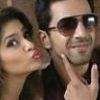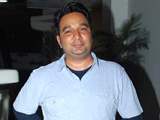Posted:
I am not good at writing. But an idea for a story is there in my mind. If any one can portrait it I will be extremely happy. The plot is asya got married when zoya doing her final yr eng or immediately after it. Zoya wanted to be an IES officer. How Asad & his family supports her to achieve her dreams & Asad being zoyas pillar of strength.
I have pasted a research about IES.
I am looking forward that someone using this concept.
Indian Engineering Services (Hindi: ), abbreviated as IES are the civil services that meet the technical and managerial functions of the Government of India. Like most countries, the Government of India recruits its civil servants and officials on the basis of merit, the middle management positions in the bureaucracy are filled through competitive exams. Large number of candidates take these exams, competing for limited posts. IES officers are selected by the union government on the recommendations made by the Union Public Service Commission (UPSC). A combined four-stage competitive examination (comprising six tests), called the Engineering Services Examination (ESE) is conducted by the UPSC for recruitment to the Indian Engineering Services.
IES remain the most sought-after careers for the engineering graduates in India.[1][2][3] In the year 2010, a total of 157,649 candidates applied for 434 vacancies (includes all branches and cadres).[4][5] In 2011, a total number of 693 candidates were recommended for appointments in these four lists include 317 General, 209 Other Backward Classes, 113 Scheduled Castes and 54 Scheduled Tribes (including 44 candidates belonging to Physically Handicapped category).[6] ESE 2012 was conducted for the recruitment of candidates to as many as 560 posts, which also includes 47 vacancies available only for the PH (physically handicapped) category.[7] ESE 2013 will be conducted for the recruitment of candidates to as many as 763 posts, which also includes 19 vacancies available only for the PH (physically handicapped) category.[8]
IES is therefore considered as the toughest exam in India and amongst the toughest in the world due to less number of posts having a selection ratio of 0.00275 (based on 2010 statistics) and its technical nature. Most toppers of this exam are graduates of institutes like the Indian Institutes of Technology[9][10] and Indian Institute of Science.[11] Because of this difficult selection procedure, IES officers carry high respect and stature in society and are able to manage activities in diverse areas. Government spending comprises more than 15 percent of India's GDP and given the extent of tasks and functions managed by the public sector, this extends to a fairly broad segment of the economy covering the railways, roads, defense, manufacturing, inspection, supply, construction, public works, power, telecommunications, etc.[12][13] All appointments to the Group A services are made by the President of India.[14]
Civil engineering
Mechanical engineering
Electrical engineering
Electronics & Telecommunication engineering
A citizen of India
A citizen of Nepal or a subject of Bhutan
a person of Indian origin who has migrated from Pakistan, Myanmar, Sri Lanka, Kenya, Uganda, Tanzania, Zambia, Malawi, Zaire, Ethiopia or Vietnam with the intention of permanently settling in India.
Educational qualifications
At least a bachelor's degree in Engineering (B.E. / B. Tech) from a recognised university or equivalent. M.Sc degree or its equivalent with Wireless Communications, Electronics, Radio Physics or Radio Engineering as special subjects also acceptable for certain services / posts only.[17]
Age limits
21-30 years on 1 August of the year of Engineering Services Examination.
Upper age limit relaxation is provided to candidates as follows:
A maximum of three years for OBC candidates [Non Creamy Layer only]
A maximum of three years in case of Defence Services personnel disabled in operations during hostilities with any foreign country or in a disturbed area and released as a consequence thereof
A maximum of five years for candidates belonging to a Scheduled Caste or a Scheduled Tribe
A maximum of five years if a candidate had ordinarily been domiciled in the State of Jammu & Kashmir during the period from 1 January 1980 to 31 December 1989
A maximum of five years in case of ex-servicemen including Commissioned Officers and ECOs/SSCOs who have rendered at least five years Military Service as on 1 August and have been released on either of the following basis:
on completion of assignment (including those whose assignment is due to be completed within one year from 1 August) otherwise than by way of dismissal or discharge on account of misconduct or inefficiency
on account of physical disability attributable to Military Service
on invalidment
A maximum of five years in case of ECOs/SSCOs who have completed an initial period of assignment of five years Military Service as on 1 August and whose assignment has been extended beyond five years and in whose case the Ministry of Defence issues a certificate that they can apply for civil employment and that they will be released on three months notice on selection from the date of receipt of offer of appointment.
A maximum of ten years in case of blind, deaf-mute and orthopaedically handicapped persons
The age relaxation will not be admissible to Ex-Servicemen and Commissioned Officers including ECOs/SSCOs who are released on own request.
ExaminationEdit
Application
Candidates are required to apply ONLINE only, by using the website www.upsconline.nic.in
Application fee
The application fee of the online form for General category male candidates is 200 (US$3.20), while no fee is required by female and the reserved category applicants.
Test centres
The test is conducted in June every year at centres across India, namely: Agartala, Ahmedabad, Aizwal, Aligarh, Allahabad, Bangalore, Bareilly, Bhopal, Chandigarh, Chennai, Cuttack, Dehradun, Delhi, Dharwad, Dispur, Gangtok, Hyderabad, Imphal, Itanagar, Jaipur, Jammu, Jorhat, Kochi, Kohima, Kolkata, Lucknow, Madurai, Mumbai, Nagpur, Panaji (Goa), Patna, Port Blair, Raipur, Ranchi, Sambalpur, Shillong, Shimla, Srinagar, Thiruvananthapuram, Tirupati, Udaipur and Vishakapatnam.
Plan of examination
There are objective as well as conventional (descriptive) papers. One paper for GA (General Ability) is part of the assessment system apart from the engineering subject of the candidate. The entire technical subject is divided into four papers (Papers II, III, IV & V). There is a penalty (negative marking) for wrong answers marked by the candidate in the objective type papers. There is a three-day schedule of the written examination, comprising all five written examinations.
Scheme of Examination
Paper I (Objective type) General Ability Test (Part A: General English) (Part B: General Studies) 200 Marks
Papers II & III (Objective type) Civil Engineering / Mechanical Engineering / Electrical Engineering / Electronics & Telecommunication Engineering 200 Marks for each paper
Papers IV & V (Conventional type) Civil Engineering / Mechanical Engineering / Electrical Engineering / Electronics & Telecommunication Engineering 200 Marks for each paper
Total marks for written examination 1000 Marks
Interview Personality Test 200 Marks
First stage
The first day is allocated for the General Ability (GA) paper. This exam is of 2 hours duration. On the first day there is just one exam. This exam consists of General English and General Studies. Paper is maximum of 200 marks.
Second stage
The second day is allocated for the Objective Technical Papers (II & III). There is one objective exam for each paper separately and each being of 2 hours in duration. Each paper is maximum of 200 marks.
Third stage
The third day is allocated for the Conventional Technical Papers (IV & V). There is one subjective exam for each paper separately and each being of 3 hours in duration. Each Paper is maximum of 200 marks.
The conventional answer sheets of a candidate are evaluated only when he / she qualifies the objective examination.
Interview
This is the fourth and final stage; candidates who qualify the written exam are called for the interview. Interview carries 200 marks. Officially called "Personality Test", the object of the interview is to assess the personal suitability of the candidate for a career in public service by a Board of competent and unbiased observers. The test is intended to judge the mental caliber of a candidate. In broad terms this is really an assessment of not only his intellectual qualities but also social traits and his interest in current affairs. Some of the qualities to be judged are mental alertness, critical powers of assimilation, clear and logical exposition, balance of judgement, variety and depth of interest, ability for social cohesion and leadership, intellectual and moral integrity.
The technique of the interview is not that of a strict cross-examination but of a natural, though directed and purposive conversation which is intended to reveal the mental qualities of the candidate.
The interview test is not intended to be a test either of the specialized or general knowledge of the candidates which has been already tested through their written papers. Candidates are expected to have taken an intelligent interest not only in their special subjects of academic study but also in the events which are happening around them both within and outside their own state or country as well as in modern currents of thought and in new discoveries which should rouse the curiosity of well educated youth.
These four stages ensure that the candidates selected, are best suited to handle the responsibilities which will be entrusted to them. The selected candidates then undergo training at the academies / institutes of their respective cadres that makes them acquainted with the area of work, the cadre / service is engaged in.
Cut off marks from last 5 years[18]
Objective Cut off Marks 600 (GA I : 200, objective II : 200, objective III : 200)
General OBC SC ST
2011 28 412 176 584
2010
2009 245 220 192 158
2008
2007
Interview Call 1000 Marks ( 600, Conventional Paper IV : 200, Conventional Paper V : 200)
General OBC SC ST
2011 432 390 339 304
2010 410 360 312 288
2009 440 401 348 296
2008 388 346 306 297
2007 392 376 347 319
Final Cutoff Marks : 1200 Marks
General OBC SC ST
2011 576 541 451 446
2010 554 514 450 420
2009 579 547 467 430
2008 526 500 438 460
2007 594 557 505 463






comment:
p_commentcount